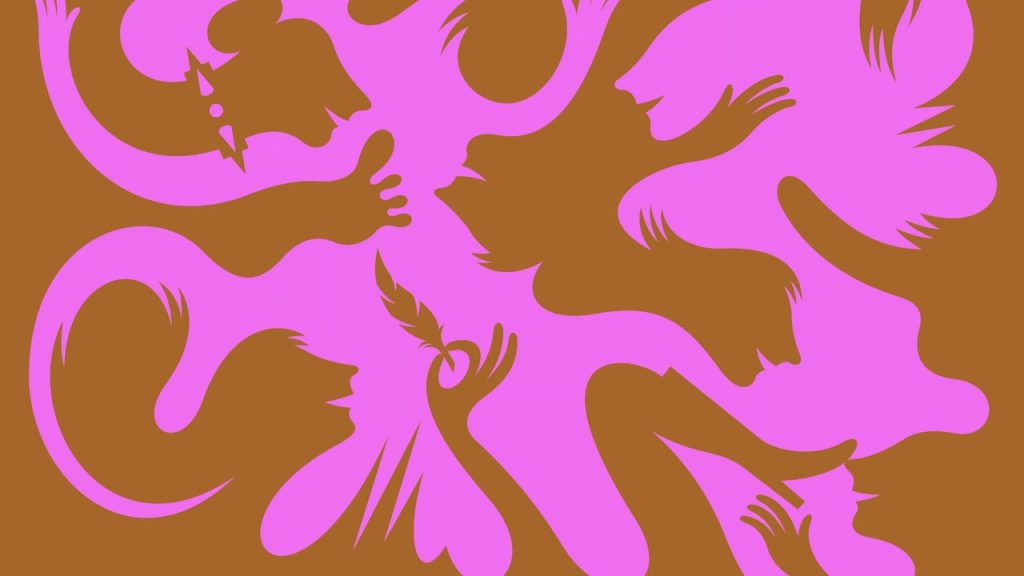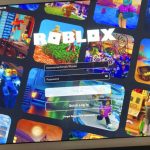[ad_1]
In the late summer months of 2020, when substantially of regular social lifestyle was suspended, a connection that I had been in for quite a few years abruptly collapsed. I was thirty-nine and terrified by the concept that I would not be reproducing the kind of heteronormative nuclear spouse and children I experienced grown up in. I wandered the sidewalks of my Brooklyn community, where discarded masks littered the gutters, with a sense of obtaining been exiled from my possess lifestyle. My condominium, with its cat and its plants, even now existed but was no lengthier my home I could get a glass of cold prosecco at my favorite bar, but the persons I utilized to see there appeared to have vanished. In Haruki Murakami’s novel “1Q84,” a character climbs down a ladder into a parallel existence in which points look to be the exact same but very little actually is. It did not just take very long to realize that there would be no ladder again to the earth I experienced known, and that the portal to whichever it was that came next was most likely going to appear on my mobile phone. This is when I downloaded a relationship app identified as Feeld.
Feeld describes alone as a technology for “open-minded singles and partners who want to check out their sexuality.” It is cost-free to sign up, though a paid membership, priced at twelve bucks a thirty day period, features perks these kinds of as the means to carry out specialized searches and enable someone know that you like them in advance of they’ve preferred you. As on most courting apps, the profiles direct with photos, which assortment from smiling partners in official costume at weddings to torsos in bondage gear. Under the photos is a caption that could possibly go through, “🙃, 31, transmasculine, gynesexual, 3 km absent.”
Feeld was started off in London and currently is offered in extra than a hundred international locations. You can be a part of linked with a lover or as a solitary individual, and select from amid 20 various categories of gender and sexuality. The app is common with nonbinary and trans individuals, married couples hoping to spice up their sexual intercourse lives, hard-core B.D.S.M. enthusiasts, and “digisexuals,” who like their erotic call with many others mediated by a monitor. It is a place to be on your own, or to enjoy at staying someone else. On Feeld, I’ve viewed self-recognized lesbians who want to have sex with gentlemen, guys who motivation lesbians, and “heteroflexibles.” In a environment occasionally described as “non-normative,” there are asexuals, cuckold fantasists, kitchen-desk polyamorists, eco-sexuals, and collectives of men offering group sexual intercourse to one girls. Some people request no overtures from cis males, white individuals, or straight people others make wry jokes about oppressive magnificence requirements. (“Fatter than my photos 😂,” 1 consumer wrote.) Utilizing Feeld, I generally believe of a line I examine in Jeremy Atherton Lin’s guide-size monograph “Gay Bar,” about the mother nature of queer areas in evening lifestyle: “Inclusivity may well not indicate most people,” Lin writes. “It could reveal the relaxation of us.”
According to the company’s data, the regular Feeld user is concerning 20-five and thirty several years outdated and lives in a major metropolis. Thirty-five per cent of consumers are element of a few. Activity on the application peaks close to four o’clock in the afternoon from Sunday to Thursday. I describe it to my buddies as “the grownup hookup app.” By “grownup,” I indicate not only that its end users are above a selected age but also that they favor a kind of maturity and decorum by “hookup,” I mean that the application facilitates not romance but sex, broadly outlined. It is not the put to discover your “down-to-earth, no-drama girlfriend” or your “partner in crime.” Like languages, attachment styles, tacos, and other clichés of Net dating floor only hardly ever. Information factors this sort of as diplomas and extravagant careers do not confer standing. As an alternative, the purpose of self-illustration on Feeld is to describe a sexual desire in language that will not repel the form of person you would like to meet, a ability that in a sexually immature society turns out to be a thing of an art.
Placing up a profile is related to most relationship applications: you upload some photos, share your standard site, and publish a quick description of you and what you are on the lookout for. Then you record your “desires” and your “interests.” On Feeld, the dreams are typically sexual preparations or fetishes, and you can incorporate as quite a few as ten. The record may read through anything like “kink, voyeurism, team perform, submission, shibari [the Japanese art of rope bondage], butts, FWB [as in, “friends with benefits”], MFM [as in, “male-female-male”], cuddling, eye make contact with.” The most commonly expressed dreams are “ethical nonmonogamy,” “couples,” “sexting,” and “casual dating.” The interests are extra prosaic: “Malbec,” “glamping.”
About and more than in my adult life, in spite of staying an introvert with a preference for monogamy, I have found myself in scenarios in which I’ve experienced full sexual liberty. The more mature I have obtained, the much more I’ve understood how normally sexual freedom imposes itself on persons who never search for it out—no relationship contract, faith, posture of custom, or abortion ban will safeguard a man or woman from having to contend with the sexual prospects of the existing. (Even the spectrum of present day celibacy—incels, volcels, femcels—can be understood, at least in aspect, as a response to so much independence.) A fulfilling sexual existence and the search for a partnership could move forward along distinct paths, even if both equally are likely to be grouped beneath the nebulous umbrella of “dating.” Mainly because a intimate rejection could mess up your brain chemistry for months, it is assisted, when choosing with whom to spend time, to know in advance which lane you were in, and what was affordable to anticipate from yet another individual. Feeld was the first app I’d made use of that expressly differentiated the research for erotic friendship from the search for intimate partnership. It was also exceptional in that it did not publicize this search in the language and imagery of cis-male fantasies of no-strings-attached intercourse. Its lifestyle indicated some knowing of the precautions and reassurances that the rest of us may possibly have to have.
In my initial profile, I set a image of myself holding the cat that I no more time lived with and a selfie I took on the road in SoHo 1 afternoon right after receiving my hair lower. I wrote some thing to the effect that I was newly out of a romantic relationship and that I favored chatting about associations. With my profile uploaded, I could now see a feed of folks arranged by geographic proximity and decide no matter whether they were a yes, a no, or someone I required to established aside for the second and think about later on. Two customers who say sure to each and every other can get started exchanging messages.
One particular of my to start with messages was to a male-woman pair who, in their image, have been dressed in black and sitting on the gnarled trunk of a fallen tree, with the male holding a crooked wooden workers, generating them search like they belonged to some kind of wizardry coven. They stated “tarot” and “psychonauts” among the their passions. At the time, I was reading through a reserve named “Superior Weirdness,” a history of esoterica by Erik Davis. “You guys look so great, I would be incredibly into this,” I wrote. They did not answer.
The initially date that labored out was with a pair in Mattress-Stuy. Their profile has considering the fact that disappeared, but in my memory of their faceless image they stood in tasteful wool coats in front of a backdrop of snow. Soon after they despatched me shots of their faces, we satisfied in Fort Greene Park, and then I went to their brownstone apartment, which experienced crown moldings, vinyl documents, and vegetation. The formulaic Brooklyn décor was comforting. I’d moved out of my condominium in a state of duress, with no time to locate a new spot. Most of my possessions were in a storage device in Queens, and the relaxation were being stuffed into the trunk of my dad’s Toyota Corolla. Meeting up with the pair was a way of pretending that almost everything would be great. They made a vegetarian supper for me and served orange wine their linen sheets have been freshly laundered. It was nice, but I was lying to them, cosplaying a sexual optimist in its place of remaining a man or woman with no notion how to start off around.
A handful of months afterwards, I drove a friend’s rented camper van from New York to Los Angeles, as a favor. I finished up staying in California for 6 months. Times would pass with out anyone inquiring where I was or what I was executing, and I turned extra of my focus to Feeld. It was an aged approach: when existence does not supply on a promised expectation, I appear for possibilities, and what I identified on this app seemed like an alternative to the fantasy of family members I was permitting go of. “Feeld is for a new form of human,” Dimo Trifonov, the app’s founder, at the time wrote. “A human belonging to a new globe, just one of creativeness, openness, regard and exploration.” This was a single way to make my unwanted long run tolerable, to at minimum make it fascinating for myself: to pretend that there was this kind of a probability as a new variety of person in a new sort of planet.
Feeld began, in 2014, with the tale of Trifonov and Ana Kirova, two Bulgarian graphic designers in their early twenties who have been residing in London. Just after conference through close friends, they fell in appreciate. Early in their romance, Ana begun getting unforeseen inner thoughts for a French girl she’d met. “It feels a bit childish now that I bear in mind it, but I imagined, If I’m falling in really like with this female, then I’m in all probability gay,” Kirova stated. Hoping to alert Dimo “that what we have is not always heading to last” she wrote him a letter. Alternatively of seeking to break up, Dimo surprised her by remaining humbled and moved.
They agreed to open their marriage. “We genuinely assumed we experienced invented a new way of residing,” Kirova advised me. “We did not know open up associations and polyamory existed.” They attempted dating apps but were satisfied with confusion by other users, who informed them, “There are swinger Web web sites for persons like you,” or questioned, “If you nonetheless want to date, then why are you with each other?”
Trifonov made a decision to produce his very own application to facilitate threesomes. He put up a Web web site with mockups of what it may seem like and a indication-up checklist to gauge interest. He called the venture 3nder (pronounced “thrinder”), and for its logo built an interlinked style and design in the condition of a a few. It had a very simple premise: “Threesomes made quick.” Even with currently being minimal much more than an strategy, 3nder bought a great deal of consideration in the sluggish 2014 media atmosphere, when the business strategy for lots of digital news startups was to make hapless younger writers write-up twenty instances a working day about push releases.
“It just blew up instantly,” Kirova remembered. “There was a significant signal-up record.” A venture-money business, Haatch, place in fifty thousand pounds to get the technologies off the ground, and the app introduced a few months later. Within a yr, extra than a million people had downloaded 3nder, with California and New York immediately getting the major markets.
The app’s scope began to alter in December, 2015, right after Tinder despatched 3nder a stop-and-desist letter around the similarity of the two companies’ names, which was followed by a trademark-infringement lawsuit. Trifonov inspired end users to flood social media with messages of help for 3nder, but by August, 2016, he conceded and rebranded the business as Feeld, which was not meant to be a pun on “playing the field” but rather a suggestion that the app supplied “a area of emotions.”
Feeld now marketed alone as a spot to meet up with “kinky, curious, and open-minded partners and singles.” A new brand, of a few interlocking ovals, rendered the quantity a few a lot more abstractly. But these adjustments have been not only a rebrand. They gave the startup a likelihood to reassess its goal. Feeld arrived at a time when the trans-legal rights motion was changing strategies about gender mainstream sexual lifestyle was shifting, also, with the language and etiquette of polyamory and nonmonogamy turning into far more commonplace. Kirova, who experienced been an informal contributor to the company, acknowledged a salaried posture there. At 1st, she feared that it may possibly negatively have an affect on her and Trifonov’s marriage. But, she admits, her signing up for the business was “inevitable”: “we have been equally working on it in any case.”
The couple found that Trifonov would move by way of profiles decisively, indicating yes or no, but that Kirova would at times open the application, seem at the particular person on top rated, and then near it once again, unable to make up her mind. They rebuilt the interface to let end users to scroll as a result of their feeds without having acquiring to choose irrespective of whether they appreciated 1 particular person in get to see the following. “It was a pretty substantial piece of operate at the time,” Kirova remembered.
In 2018, Kirova took around as the head of merchandise, which means that Feeld’s philosophy and person practical experience fell beneath her command, although Trifonov, as the C.E.O., focussed additional on expanding the firm. Just one day, she arrived across a extended and heartfelt information from a trans lady who was frustrated that Feeld had, at the time, only 3 gender options. “She felt like she was erased, since she couldn’t convey her id outside of the ‘other’ possibility we had, but that Feeld was the only courting app she felt cozy in,” Kirova mentioned. (OkCupid had additional 20-two gender alternatives in 2014, but other apps have been sluggish to abide by.) “I’m pretty ashamed by it, for the reason that it was a normal situation of a human being from a marginalized local community educating another person from a privileged a person.” She recalled the lesson as an emotional one particular: “This is not some sport they are actively playing,” she recognized, of her customers. “It’s a little something which has critical impression and great importance in people’s lives.”
[ad_2]
Resource website link


